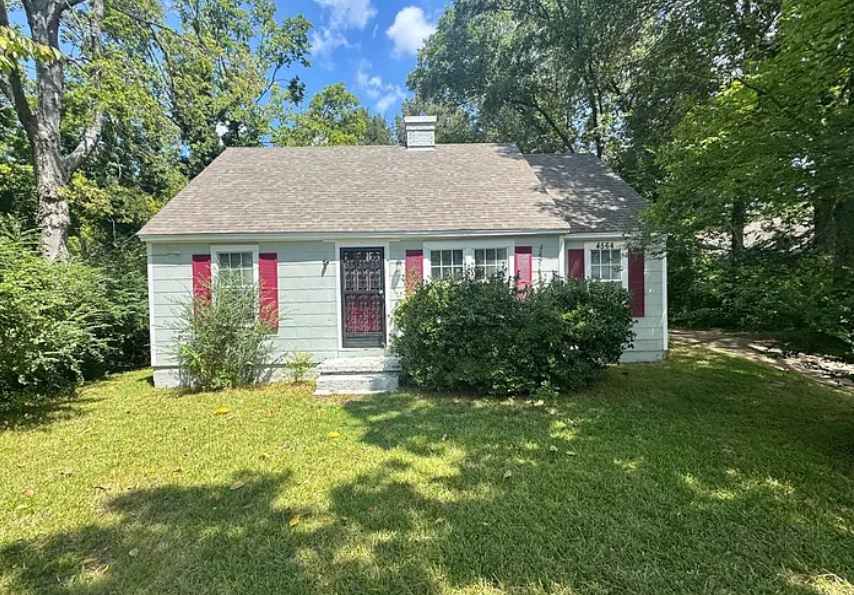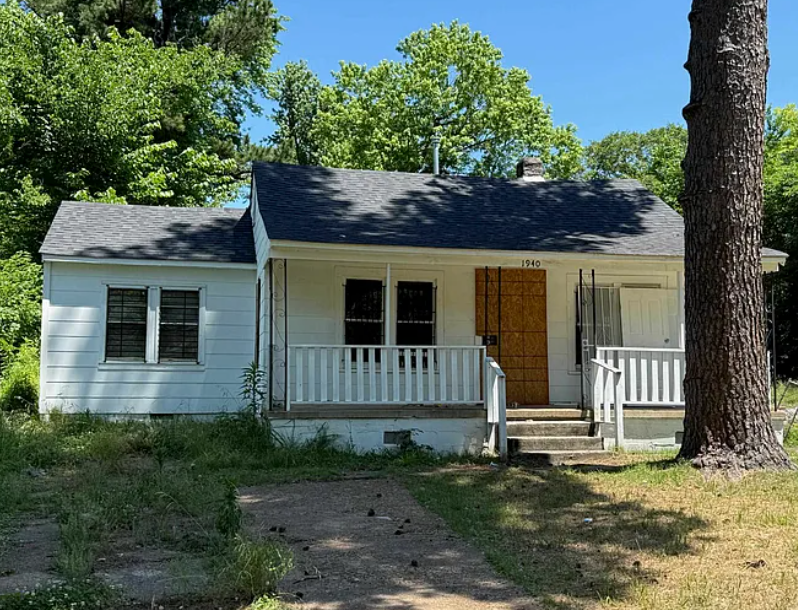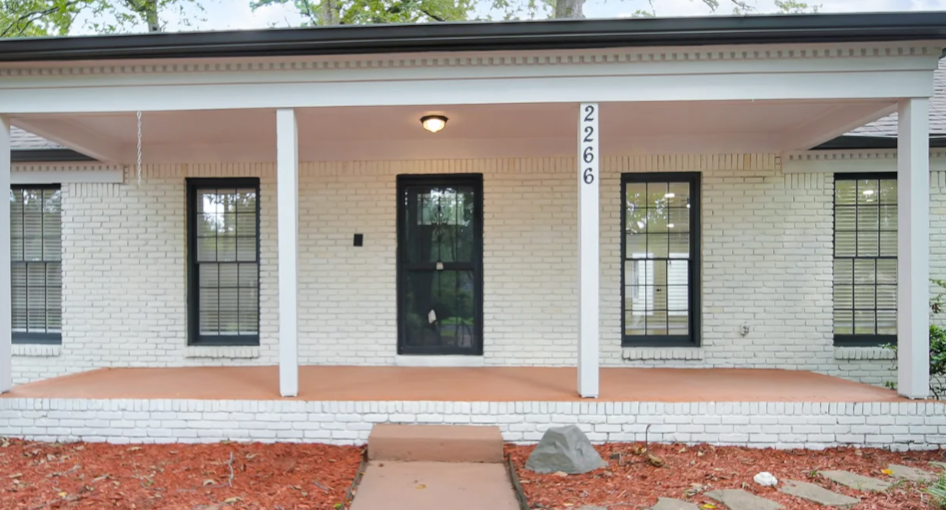Your Essential Guide to Home Inspection in Madison, MS
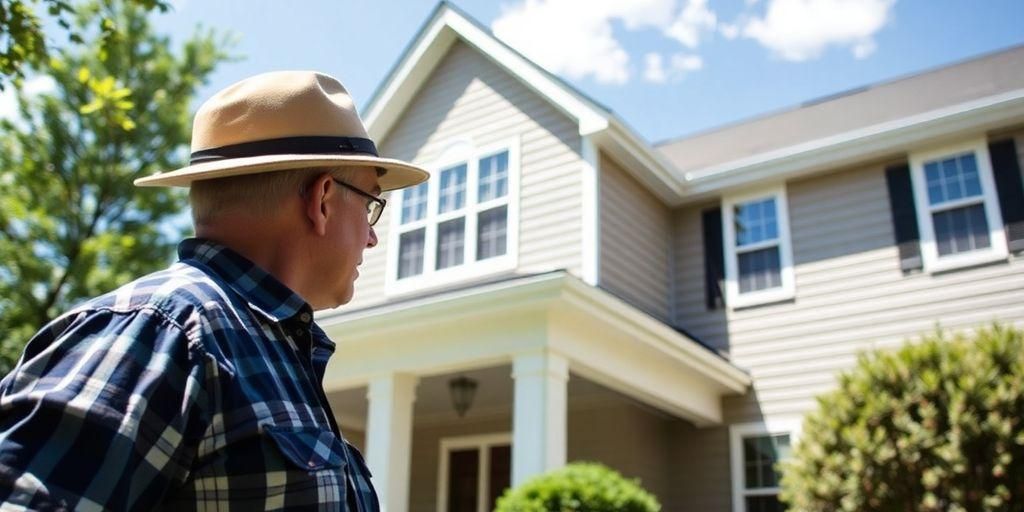
Your essential guide to home inspection in Madison, MS. Learn what's covered, common findings, and how to choose an inspector.
Buying a house in Madison, MS is a big deal. You want to make sure you're getting a good place, right? That's where a home inspection madison ms comes in. It’s like a check-up for the house before you buy it. This guide will help you understand why it's important, what they look for, and how to use the report to your advantage. We’ll cover everything from picking the right inspector to what to do with the findings.
Key Takeaways
- A home inspection in Madison, MS is super important to find hidden problems and protect your investment. It's not the same as an appraisal, which is about value.
- Inspections usually check the house's structure, foundation, roof, plumbing, and electrical systems. Sometimes you might need extra checks for things like termites or mold.
- Expect the inspection report to point out major issues needing fixing, minor things that are cosmetic, and general maintenance tips.
- When the inspector is there, be polite, give them access to everything, and don't get in their way. You can usually ask questions at the end.
- The inspection report is your tool. You can use it to ask for repairs or price changes, especially if there's a contingency in your contract.
Understanding the Importance of a Home Inspection in Madison MS
Buying a house in Madison, MS, is a big deal, and you want to make sure you're not walking into any major headaches. That's where a home inspection comes in. Think of it as a really thorough check-up for your potential new home. It's not just about whether the paint is fresh or if the carpet looks okay; it's about the nitty-gritty stuff that could cost you a lot of money down the road if you don't know about it.
Why a Home Inspection is Non-Negotiable
Seriously, don't skip this step. A home inspection is your chance to find out about things like a shaky foundation, old wiring that could be a fire hazard, or even signs of water damage that aren't obvious at first glance. It's your best defense against buying a money pit. Plus, knowing about these issues gives you some serious bargaining power when you're talking price with the seller. It’s all about making sure you know exactly what you’re getting into before you sign on the dotted line.
The Difference Between Inspection and Appraisal
People sometimes mix these two up, but they're different. An appraisal is all about figuring out what the house is worth in the current market. Lenders usually require this to make sure the house is worth the loan amount. A home inspection, on the other hand, is all about the physical condition of the house. It looks for problems, big or small. Both are important, but they serve different purposes in the home-buying process.
Securing Your Investment
At the end of the day, getting a home inspection is about protecting yourself and the money you're about to spend. It helps you avoid buying a place with hidden, expensive problems. It can even play a role in whether your mortgage gets approved. Being informed is the best way to make a smart, safe choice for your future home. For more on making sure your new place is a solid investment, you might want to look into local real estate advice.
What a Home Inspection in Madison MS Typically Covers
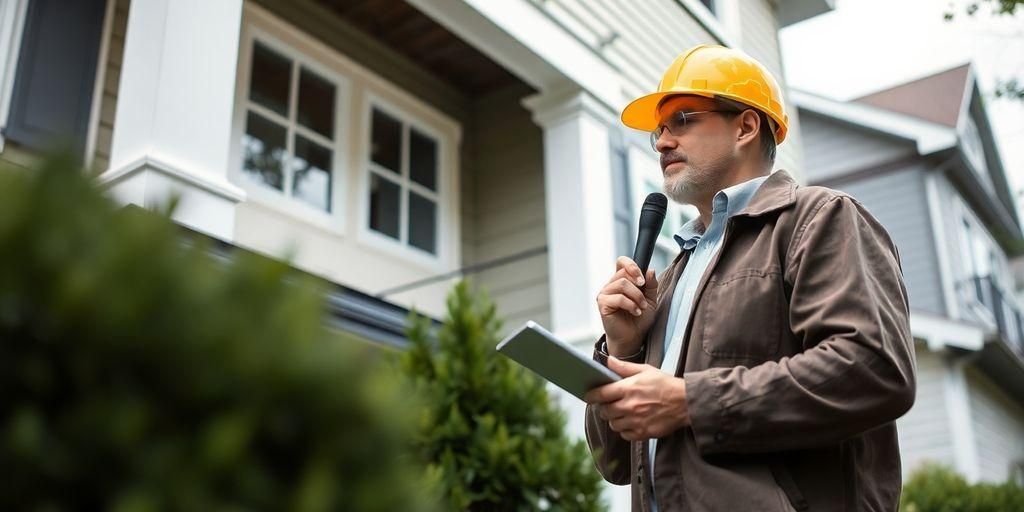
A home inspection is your chance to get a really good look at the house you're thinking of buying. It's not just about finding big problems, but also about understanding the general condition of everything. Think of it as a thorough check-up for your potential new home. The inspector will go through the house, both inside and out, and give you a report on what they find. It’s a pretty detailed process, so don’t expect it to be super quick.
Structural Integrity and Foundation
This is a big one. The inspector will check the foundation for any cracks, settling, or water damage. They'll also look at the framing and support structures to make sure everything is sound. A solid foundation is key to a healthy home, and any issues here can be costly to fix. They're basically looking for anything that could compromise the house's stability.
Exterior Components and Curb Appeal
Don't forget the outside! The inspector will examine the siding, trim, windows, doors, and any porches or decks. They'll check for damage, proper sealing, and signs of wear and tear. Drainage around the foundation is also important – you don't want water pooling up against the house. This part of the inspection helps identify issues that could lead to bigger problems down the road, like water intrusion.
Roofing Systems and Drainage
Your roof is your home's first line of defense against the weather. The inspector will look at the roofing material itself, checking for missing or damaged shingles, signs of aging, and proper flashing around vents and chimneys. They'll also assess the gutters and downspouts to make sure they're directing water away from the foundation. A good roof and drainage system are vital for preventing leaks and water damage inside the home.
Plumbing and Electrical Systems
These are the hidden guts of your house. For plumbing, they'll check for leaks, water pressure, and the condition of pipes and fixtures. You'll want to know if the water heater is working okay, too. On the electrical side, they'll inspect the service panel, wiring, outlets, and switches. They're looking for safety issues, outdated wiring, or overloaded circuits. Understanding these systems is important for both safety and functionality. You can find more details on what a home inspection covers at Pinpoint Home Inspections.
It's important to remember that a home inspection is a visual examination. Inspectors can't see inside walls or under the ground, so some issues might still be hidden. However, they are trained to spot the signs of potential problems.
Navigating Common Findings in a Home Inspection
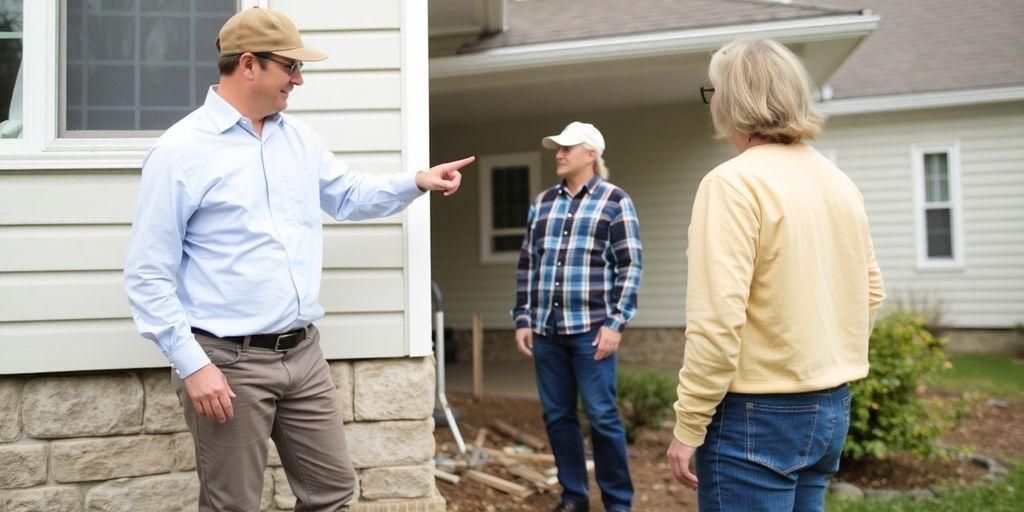
So, you've made it through the initial excitement of finding a house in Madison, MS, and now it's time for the home inspection. This is where the real nitty-gritty comes out, and it's totally normal to feel a little anxious about what the inspector might find. Think of it like a doctor's check-up for your house – they're looking for anything that might be a problem now or down the road.
Major Issues Requiring Immediate Attention
These are the biggies, the things that could seriously affect your safety, the home's structure, or its overall value. We're talking about things like major foundation cracks, serious electrical hazards (like old, frayed wiring), or significant plumbing leaks that could cause water damage. If the inspector flags something like this, it's usually something you'll want to get fixed before you close on the house, or at least have a solid plan and budget for it. It's not about finding a perfect house, but about knowing what needs fixing.
Minor Defects and Cosmetic Concerns
Then there are the smaller things. These might be things like a leaky faucet that's an easy fix, a few cracked tiles, or some peeling paint. They aren't deal-breakers, but they're still worth noting. The inspector will point these out, and it's good to have a list so you know what you might want to tackle after you move in. Sometimes these minor issues can be a good point for negotiation, too.
Maintenance Recommendations for Long-Term Care
Beyond immediate repairs, inspectors often include tips on how to keep the house in good shape moving forward. This could be anything from suggesting you clean out the gutters regularly to recommending an annual check-up for your HVAC system. These are the proactive steps that help prevent bigger problems later on. It’s like getting advice on how to keep your car running smoothly – just good general upkeep. For example, keeping your gutters clear can prevent water from backing up and damaging your roofing systems.
It's important to remember that no house is perfect. The inspection report is there to give you a clear picture of the property's condition, so you can make an informed decision and budget accordingly. It’s all part of making sure your new home in Madison is a sound investment.
Deepening Your Home Inspection for Comprehensive Insight
Considering Specialized Inspections
While a standard home inspection covers a lot of ground, it's not always exhaustive. Think of it as a general check-up. For certain things, you might want to bring in a specialist. For instance, if the house is in an area known for radon gas, getting a separate radon test is a good idea. Similarly, if you see any signs of water damage or suspect mold, a mold inspection can give you a clearer picture. These extra checks aren't usually part of the basic package, but they can save you a lot of headaches down the road. Your main inspector might not do these, but they can often point you to someone who does.
Benefits of Going Beyond the Basics
Going the extra mile with inspections can really pay off. It's about getting a complete understanding of your potential new home's condition. Sometimes, a standard inspection might miss things that a specialist would catch. For example, a pest inspection can identify termite damage that might not be obvious to a general inspector. Knowing about these issues upfront gives you more power when you're negotiating with the seller. You can ask for repairs or a price reduction based on these findings. It’s all about making an informed decision and protecting your investment.
Here are a few examples of specialized inspections you might consider:
- Radon Testing: Important in certain geographic areas.
- Mold Inspection: Especially if there are signs of moisture or water intrusion.
- Pest Inspection: To check for termites, carpenter ants, or other wood-destroying insects.
- Sewer Scope: To check the condition of the underground sewer line.
- Well and Septic Inspection: If the home isn't connected to public utilities.
These additional checks can provide peace of mind and prevent unexpected costs after you move in. It's wise to discuss these options with your real estate agent to see what makes sense for your specific situation in Madison.
Preparing for Your Home Inspection Day
Getting ready for your home inspection day in Madison, MS, is pretty straightforward, but doing a little prep work can make a big difference. It’s not about hiding anything, but rather making sure the inspector can actually see what they need to see without a hassle. Think of it as setting the stage for a smooth process.
Professional Etiquette During the Inspection
When the inspector arrives, it’s best to let them do their job without hovering. You can be present, but try to stay out of their way. If you have questions, it’s usually better to save them for the end of the inspection or ask your real estate agent to relay them. This keeps the inspector focused and avoids any unintentional interference. Remember, they're there to give an unbiased assessment of the home's condition.
Facilitating Inspector Access to Key Areas
This is where your prep work really pays off. Make sure the inspector can get to everything. That means clearing out storage areas, especially in the attic, basement, or crawl spaces. If you have a lot of boxes or furniture blocking access to the electrical panel, HVAC system, or plumbing shut-off valves, try to move them. Also, ensure any remotes for ceiling fans or fireplaces are readily available. It’s also a good idea to have all utility services (water, gas, electricity) turned on for the inspection. If you've had any recent maintenance done, like servicing the air conditioner, having the receipts or warranty information handy can be helpful for the inspector to review.
Communicating Effectively with Your Inspector
Before the inspection day, have a quick chat with your inspector. Ask them about their preferred method for discussing findings – some like to walk you through at the end, while others prefer a phone call. If you’re the seller, it’s good to let the buyer know you’re available to answer any questions they might have through their agent. Being open and communicative helps build trust and can prevent misunderstandings down the road. If you're the buyer, remember that inspectors like Andy are known for their approachable demeanor and are usually happy to explain their findings. You can find a highly recommended home inspector who fits this description.
Leveraging Your Inspection Report in Madison MS
So, you've got the home inspection report in your hands. What now? This document is more than just a list of findings; it's your roadmap for understanding the home's condition and a key tool in your negotiation process. Don't just skim it – really dig in.
Understanding the Inspection Report Details
The report will detail everything the inspector observed, from the big stuff like the foundation and roof to smaller things like a leaky faucet. You'll likely see categories for structural integrity, exterior components, roofing, and the plumbing and electrical systems. It's usually broken down into sections, often with photos to show you exactly what they're talking about. Think of it as a detailed health check for your potential new home. You'll see notes on major issues, minor defects, and even recommendations for ongoing maintenance.
The Power of the Inspection Contingency
This is where the report really shines. Most purchase agreements include an inspection contingency. This clause basically says you can back out of the deal or ask for repairs if the inspection uncovers significant problems. It's your safety net. If the report highlights issues that weren't disclosed or that you weren't expecting, you have a few options:
- Ask the seller to fix the problems before closing.
- Request a credit from the seller to cover the cost of repairs yourself.
- If the issues are too serious, you might be able to walk away from the deal entirely.
The inspection contingency is a critical part of the home-buying process. It protects you from unexpected costs and ensures you're making a sound investment. Always review this clause carefully with your real estate agent.
Negotiating Repairs or Adjustments
Once you've reviewed the report, it's time to talk to the seller. You'll want to present your findings clearly, focusing on the significant issues that affect the home's safety, structure, or major systems. It's often helpful to prioritize the repairs needed. For example, a cracked foundation is a much bigger deal than a loose doorknob. You might present a counter-offer that includes a list of requested repairs or a credit for those items. Remember, the goal is to reach an agreement that works for both you and the seller, ensuring you get the home in good condition without overpaying for hidden problems. You can find more information on what's typically covered in a home inspection at Pinpoint Home Inspections.
Choosing the Right Home Inspector in Madison MS
Finding the right person to check out your potential new home is a big deal. It’s not just about getting a report; it’s about getting a clear picture of what you’re buying. Think of it like picking a doctor for your house – you want someone knowledgeable and trustworthy.
Checking Credentials and Experience
First things first, you’ll want to see if your inspector has the right paperwork. Look for certifications from recognized groups like the American Society of Home Inspectors (ASHI) or the International Association of Certified Home Inspectors (InterNACHI). Beyond that, how long have they actually been doing this? An inspector who’s been around the block a few times is more likely to spot things that a newer inspector might overlook. It’s like asking for a seasoned mechanic versus someone fresh out of trade school.
Reviewing References and Online Reputation
Don’t be shy about asking for references from previous clients. Hearing from people who have already used the inspector can give you a good idea of their professionalism and how thorough they were. Also, take a peek at online reviews. Sites like Google or Yelp can offer insights into an inspector’s reputation in the Madison area. You want someone who consistently gets good feedback.
Comparing Costs and Requesting Sample Reports
Of course, cost is a factor. Get quotes from a few different inspectors to make sure you’re getting a fair price for the service. However, don’t let price be the only thing you consider. It’s also a good idea to ask for a sample inspection report. This lets you see the kind of detail they provide and how clearly they explain any issues they find. A good report is easy to understand and includes photos, which can be super helpful. For more on what goes into a home inspection, you can check out details on FHA home inspection requirements.
Picking the right inspector sets the tone for the entire home-buying process. A good inspection report can save you a lot of headaches and money down the road.
Wrapping Up Your Home Inspection Journey
So, you've gone through the home inspection process here in Madison. It might seem like a lot of steps, but really, it's all about making sure you know what you're getting into with your new place. Think of it as getting the inside scoop before you sign on the dotted line. This guide hopefully gave you a clearer picture of what to look for and why it matters. Remember, a little bit of homework now can save you a whole lot of headaches and cash down the road. Happy house hunting!
Frequently Asked Questions
What is a home inspection and why is it important?
A home inspection is like a doctor's check-up for a house. It helps you find out if there are any hidden problems with the house's structure, systems (like plumbing and electricity), or other parts. This helps you know exactly what you're buying and if it's a good deal.
What's the difference between a home inspection and an appraisal?
An inspection looks at the house's condition to find problems, while an appraisal checks how much the house is worth. Both are important for buying a home, but they check different things.
What parts of the house does a home inspection usually cover?
A typical inspection checks the foundation, roof, walls, windows, doors, plumbing, electrical wiring, and heating/cooling systems. It's a look at the main parts of the house to see if they're working okay and if there are any big issues.
What kind of problems do home inspectors usually find?
You might find things like a leaky faucet, a small crack in the foundation, or some old wiring. Some issues are minor and just need fixing, while others could be bigger problems that need more attention or could cost a lot to repair.
Should I be present during the home inspection?
It's a good idea to be there during the inspection. You can ask the inspector questions as they go along and learn more about the house's condition. Just try not to get in their way and let them do their job.
How can I use the home inspection report after it's done?
The inspection report lists all the problems found, from small things to big ones. You can use this report to talk to the seller about fixing the issues or lowering the price. If there are too many big problems, you might even be able to back out of buying the house, depending on your contract.
Request Your Offer Now
